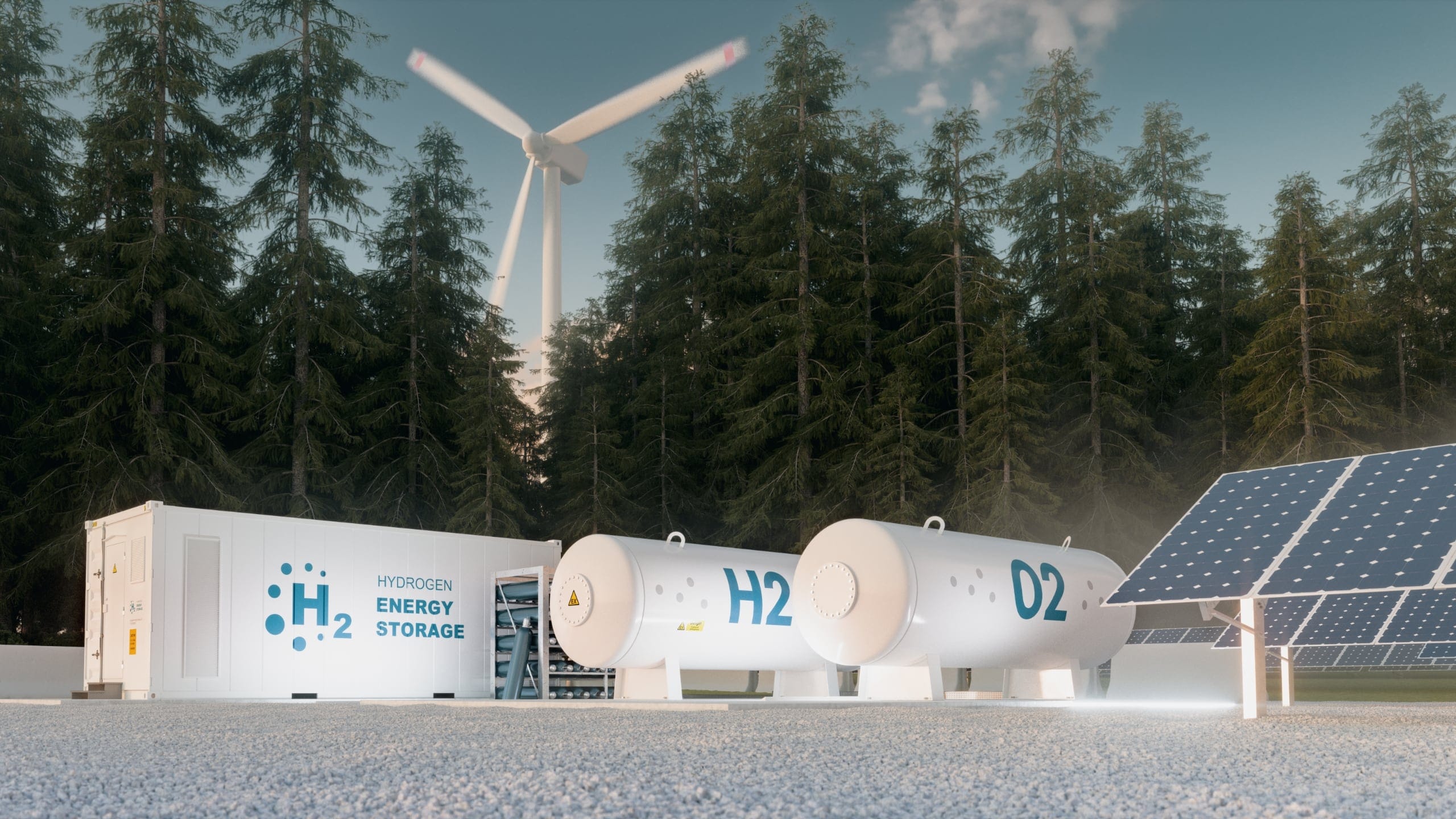NEWS & INSIGHTS | article
Closing the Gap – realising a net zero North Sea

- Delivering a tech-enabled integrated net-zero energy future will cost £430 billion but generate more than £2.5 trillion in value to the UK economy
- Leading global push to develop net-zero energy system technologies will create major opportunities for UK jobs and manufacturing
- The NZTC and other organisations which develop technology to enable net-zero carbon energy, in partnership with industry, government and academia, are pivotal to unlock this value
The NZTC today (16 September 2020) released a comprehensive roadmap setting out the critical technologies needed to deliver an integrated net-zero energy system on the UK Continental Shelf (UKCS), highlighting the major economic opportunity this transformation offers.
Closing the Gap: Technology for a Net Zero North Sea, produced by global natural resources consultancy Wood Mackenzie for the NZTC, with support from Chrysaor and the Scottish Government, sets out a technology roadmap for an integrated energy future in the North Sea.
The report outlines how accelerating the development of new energy technologies can dramatically reduce emissions, and how adopting new technologies will harness the full potential of the UK’s world-class natural resources from renewable power sources and oil and gas, to hydrogen and long-term carbon storage.
Maximising the opportunities to innovate across the renewable and fossil fuel sectors could create more than 200,000 new jobs across the UK and contribute more than £2.5 trillion to the nation’s economy by 2050. It would also create a diversified energy sector, support a new generation of highly skilled jobs and open up exciting export potential.
The oil and gas sector, including its workforce, supply chain and infrastructure, can enable and accelerate the growth of the renewables sector, while renewable energy sources will be critical in supporting the oil and gas industry on its journey to net zero.
Realising this integrated vision will require £430 billion of new investment to close the gap on a number of crucial technologies and accelerate their deployment. These include:
- Oil and gas platform electrification, methane leak detection and flaring mitigation
- Larger blades, taller towers and automated inspection technology for fixed offshore wind
- Optimised and standardised floating offshore wind foundation designs
- Innovative hydrogen membranes and CO2 sorbents to improve blue hydrogen yield
- New saltwater electrolysis technologies to reduce the cost of green hydrogen production
- Advanced catalyst materials for hydrogen fuel cells to reduce costs and improve durability
- New solvents, sorbents, membranes and conversion solutions to reduce the cost of CCS
- Power take off solutions and support systems for marine renewables such as floating solar
Colette Cohen OBE, CEO at NZTC said:
“Reimagining the North Sea as an integrated energy system is essential for the UK and Scotland to achieve their net-zero ambitions. But we need to invest now to close the gap on the key technologies needed to make this ambition a reality.
“We need to digitise our offshore energy sector and solve big challenges like energy storage, infrastructure redeployment, transmission systems and cost-competitive floating wind structures. By doing this, we can create strategic advantage and valuable export opportunities.
“With its decades of energy expertise, the UK has a huge opportunity to become a leading manufacturer, designer, installer and operator of net-zero energy systems.
“Leveraging our strength in oil and gas, we can also partner with the renewables sector to accelerate the delivery of the next generation of energy in the UK – and internationally. This is where governments and industry should focus investment at pace in the coming years.”
Malcolm Forbes-Cable, vice president, upstream consulting at Wood Mackenzie said:
“The North Sea is at the heart of the UK economy. This won’t change, but our energy eco-system will.
“This report underlines how the UKCS can be redeveloped into a decarbonised, integrated energy system; one that can optimise the offshore sector’s economic value and deliver a secure supply of affordable energy.
“Hydrogen, for example, can be used in place of gas to heat homes and power engines and industrial processes, while reducing our carbon footprint. The Committee on Climate Change (CCC) has set significant targets for a low-carbon hydrogen economy in the UK, but production remains close to non-existent. There are key technology challenges to overcome before hydrogen can be deployed on a vast scale.”
Scotland’s Energy Minister, Paul Wheelhouse, said:
“The Scottish Government and the oil and gas sector recognise the considerable role offshore energy integration and technology can play in the North Sea’s transition to net zero.
“This study provides us with further intelligence to support and accelerate the development of an updated integrated energy vision, building on our 2017 Scottish Energy Strategy and can inform the work of the Oil and Gas and Energy Transition Strategic Leadership Group. An integrated offshore energy system – including carbon capture, utilisation and storage and the use of hydrogen – can help Scotland and the UK meet our greenhouse gas emission reduction requirements in the timescale necessary for action, while also supporting Europe’s decarbonisation, too.
“The skills, expertise and infrastructure of the oil and gas sector and its supply chain will be vital in unlocking these opportunities and also contributing to development of the great potential for offshore wind, floating wind and marine energy deployment in Scotland’s waters.”
Phil Kirk, CEO at Chrysaor said:
“We were pleased to once again partner with NZTC and the Scottish Government in this report. The oil and gas industry in the UK has all of the competence, innovation and resources to deliver the engineering and technical solutions to fulfil the energy transition. As an industry, we are experts in solving problems and safely engineering solutions.
“Indigenous net zero energy and hydrocarbons to meet British demand is something I am passionate about and Chrysaor, as one of the largest operators in the North Sea, will play a key role in safely and efficiently meeting that demand in a way we can all be proud of.”
Dr Andy Samuel, Oil & Gas Authority (OGA) Chief Executive, said:
“The UK’s net zero target is ambitious and will require resolute focus to develop new, low-carbon, economic energy solutions at the pace they are needed.
“This study by NZTC and its partners recognises that the UK Continental Shelf, and the UK oil and gas industry, are crucial to delivering net zero and the OGA looks forward to continuing our close work with government, NZTC , and industry to achieve this.”
OGUK Chief Executive Deirdre Michie said:
“As we continue to navigate the challenges of the coronavirus pandemic and low commodity prices, this encouraging report underlines the positive role of the UK’s offshore oil and gas industry in securing a cleaner energy future for us all.
“With the essential expertise to help the UK meet its climate ambitions by 2050, our industry also remains a crucial part of the UK economy, providing affordable energy for households and families, supporting jobs, and creating exciting energy jobs of the future. It is clear that this changing industry is firmly on the path to delivering Roadmap 2035, helping position our country as a world-leader in the green recovery.”
Chair of the Aberdeen City Region Deal Joint Committee and co-leader of Aberdeen City Council, Councillor Jenny Laing said:
“The Aberdeen City Region Deal (ACRD) Joint Committee welcomes this report which underlines the role of the region in supporting the UK unlock the full economic and environmental opportunity presented by the drive to net zero. As one of the six key projects of the £826million Deal, NZTC is a key player in our journey to being climate positive and delivering the technology and skills required to reach national targets.
“The Aberdeen City Region is helping to lead the global energy transition and, with continued investment, we will build on existing infrastructure and skills here in the region through programmes such as the City Region Deal and Aberdeen City Council’s Net Zero Vision, which will diversify and sustain our economic status and enable our contribution to net zero targets.”
Leader of Aberdeenshire Council, Councillor Jim Gifford, said:
“The net zero technology report demonstrates the importance of the energy sector to Aberdeenshire, Aberdeen and the national economy. The role this region can, and will, play in supporting the UK overall in the drive to net zero is significant and we will build on our well-established research base and history of innovation to support the delivery of new technologies, in turn helping to anchor expertise in the region and providing another reason for the global industry to learn from us.”
Subscribe for the latest updates


